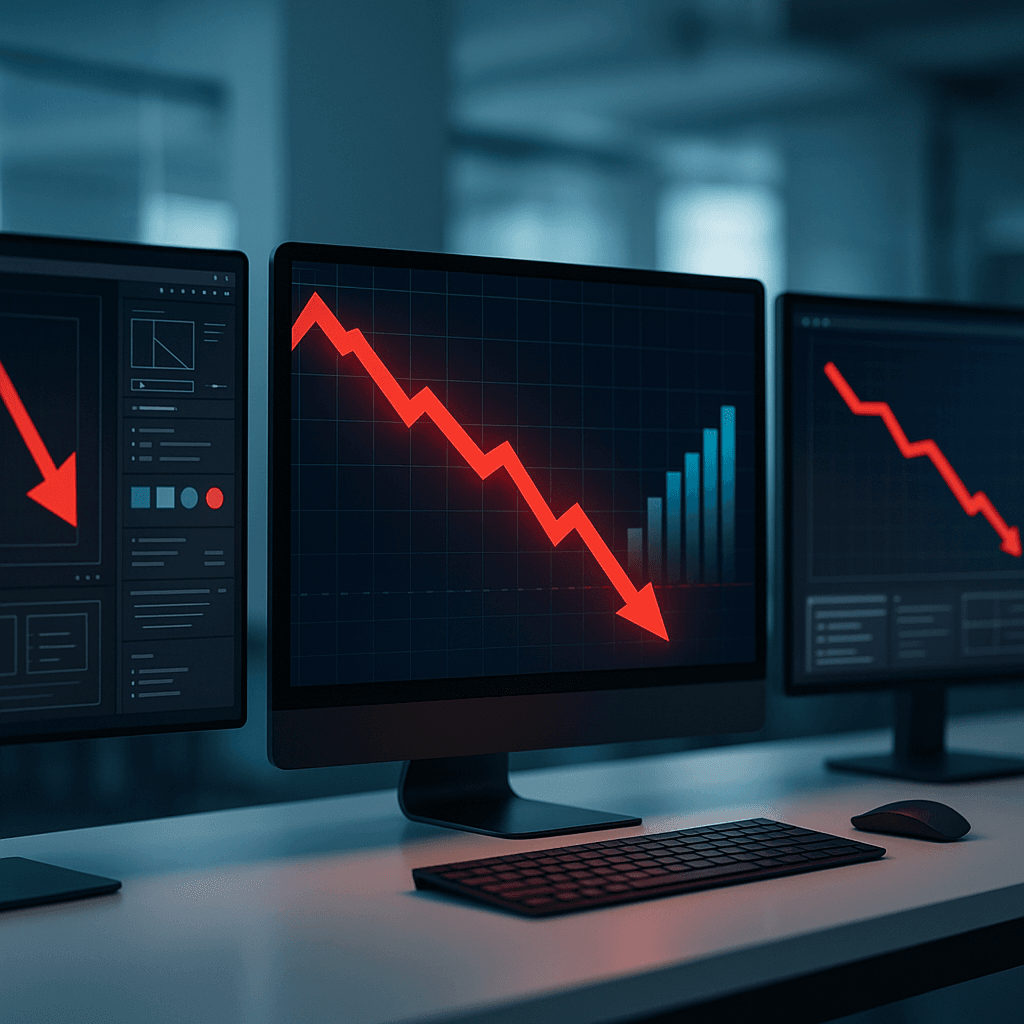Salesforce delivered another mixed quarter Wednesday, beating Q2 earnings and revenue estimates but delivering guidance that spooked investors and sent shares tumbling 4% after hours. The enterprise software giant's continued struggle with single-digit revenue growth highlights how the AI boom has largely bypassed traditional SaaS leaders while benefiting chip makers and cloud providers.
Salesforce just delivered another quarter that perfectly encapsulates the company's current predicament: solid execution on existing business paired with guidance that underscores deeper growth challenges. The enterprise software pioneer reported adjusted earnings of $2.91 per share on $10.24 billion in revenue, beating analyst expectations of $2.78 and $10.14 billion respectively, according to LSEG consensus data.
Investors weren't impressed. Shares dropped 4% in extended trading as management's Q3 guidance of $2.84 to $2.86 per share on $10.24 billion to $10.29 billion in revenue came in at the low end of Street expectations. Analysts had been looking for $2.85 per share on $10.29 billion in revenue, signaling the market wanted to see more aggressive growth projections.
The earnings beat masks a more troubling trend that's been haunting Salesforce throughout 2025. Revenue growth of 10% year-over-year, while respectable for most companies, represents another quarter of single-digit percentage growth that's persisted since mid-2024. For a company that once commanded premium valuations based on consistent 20%+ growth rates, this deceleration has been punishing.
"Salesforce has fallen out of favor on Wall Street this year due to an extended stretch of meager revenue growth," the company acknowledged in Wednesday's earnings report. The admission reflects a stark reality: while peers like Microsoft, Google, and Amazon have seen AI-driven revenue acceleration, traditional SaaS leaders have been largely left behind.
The numbers tell the story of this divergence. Going into Wednesday's report, Salesforce was down 23% for the year, lagging behind all but one stock in the Dow and trailing every other large-cap technology company. According to Jefferies analysts, who maintain a buy rating on the stock, the company's enterprise value to free cash flow ratio has hit a 10-year low due to "fears of disruption from AI."












